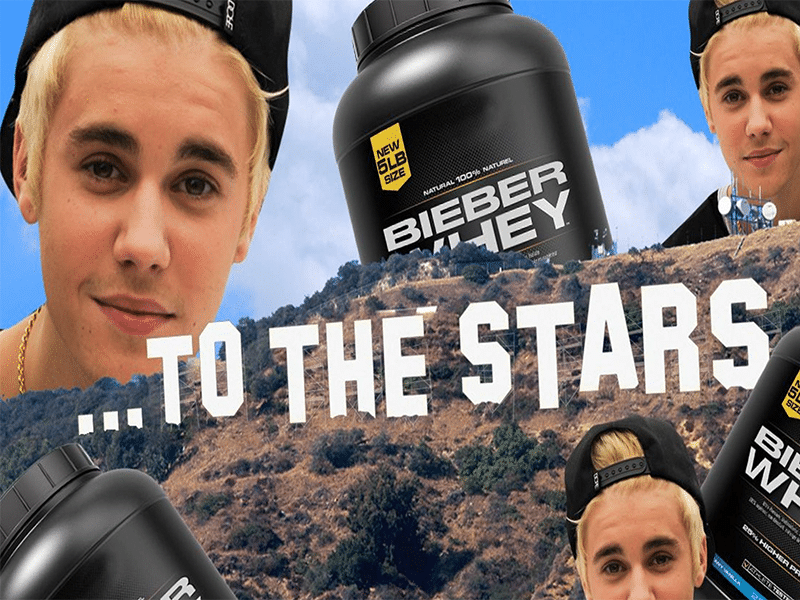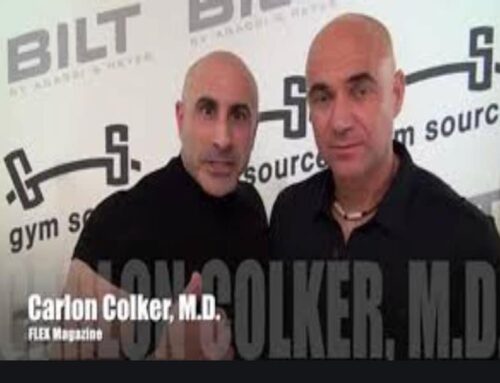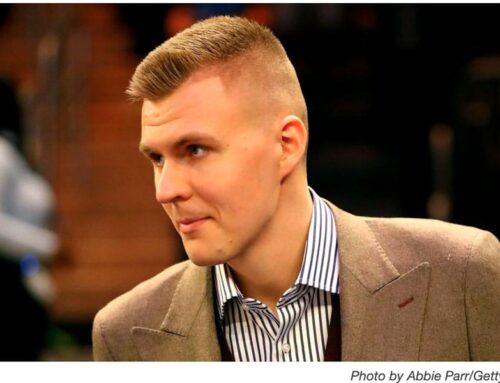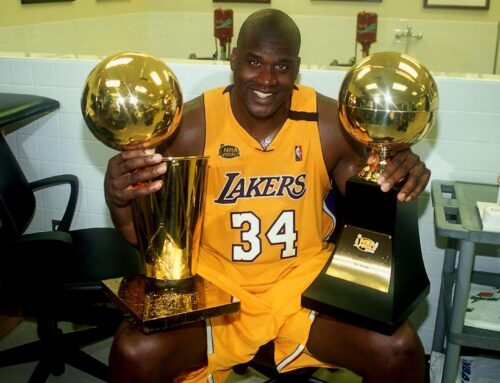Who is Justin Bieber’s doctor? Who tells Emma Roberts her future? Who spray-tans Britney Spears? Welcome to the fourth installment of “…To the Stars,” the series that explores the world of celebrity services.
One bright Wednesday morning in July, I arrive at Grand Central Station with the intention of heading to Greenwich, Connecticut, to interview Justin Bieber’s doctor. Despite getting to the station almost an hour early, I nearly miss my train because I spill an entire glass of water on myself while standing in line for my ticket, and a stranger who reveals himself to be a lawyer tells me I have to stand by the small lake I have created until it’s mopped up in case it kills somebody — a death for which I alone will be legally responsible. Fortunately, no one dies, and I board the train with a clean conscience.
As we approach Connecticut, my phone rings. It is Justin Bieber’s doctor’s office. “Hi, Rachel,” says Justin Bieber’s doctor’s receptionist, Libby. “Dr. Colker wants to let you know he’s running a bit late. He just came from seeing Justin Bieber on tour.”
If you, like me, have loosely followed the internet for the past 10 or 15 years, Justin Bieber’s doctor, Carlon Colker, will likely not be unfamiliar to you. Dr. Colker was most recently described to GQ by Justin Bieber as “a genius,” “a physician,” and “a bodybuilder” who provided him with “natural sleep aids” to curb his Adderall-induced anxiety. Dr. Colker is the man who gave credence to Jeremy Piven’s infamous sushi overdose. Dr. Colker helped Bradley Cooper become an American Sniper. Dr. Colker has enjoyed a decades-long professional and personal relationship with Shaq, whom he helped get back in shape and with whom he appeared on Shaq’s Big Challenge, a reality show about obese Floridian children. Though Dr. Colker, 51, has retired from the bodybuilding circuit, the practice remains a passion of his — he’s written a weight-loss guide called The Greenwich Diet and promoted several bodybuilding-related health supplements over the course of his career.
When I arrive at Peak Wellness, which is the name of Dr. Colker’s office, Libby explains to me that Dr. Colker had not merely attended Justin Bieber’s show, but actually accompanied Justin Bieber on the last portion of his U.S. tour. I make a note to ask 400 questions about this. In the meantime, I explore the Peak Wellness office. Here is an abridged list of the things that decorate its walls:
• A shelf stacked with copies of The Greenwich Diet; multiple bodybuilding supplements, including Colker’s own protein powder, Doc’s Whey (more on this later); and a novella-length book titled Dr. Colker’s 5-Day Intensive for 8-Pack Abdominals.
• An Ant-Man poster with an inscription that reads, “Carlon, thanks for making me look so huge. Paul Rudd.”
• An American Sniper poster that reads, “Dr. C, to the man who guided me through it all, thanks for everything. Ur the best! Bradley Cooper.”
• A photo of Shaq signed, “Love you.”
• Another poster of Shaq signed, “You are the true healing man.”
• An Entourage poster with an inscription from Jeremy Piven: “Dr C you changed my life thank you.”
• A The Goods: Live Hard, Sell Hard (?) poster with an inscription from Jeremy Piven: “Dr C thank you for your guidance, you are da mang!! It is all because of you my friend.”
I wait for Dr. Colker for one hour, which is fine, considering the glut of signed paraphernalia for me to take in. While I am studying a poster of The Hangover illegibly autographed by Cooper (“the coolest [??] life saver! All the best!”), Dr. Colker arrives in a gust of potent cologne. He is visibly exhausted from his whirlwind tour with Bieber; his staff greet him with cheers of “Back from the dead!” More significantly, he is gigantic. His head — completely bald, completely round — is dwarfed in size only by his arms, which look like they could inadvertently knock an airplane out of the sky. I am certain that if I accidentally bump into his rock-solid chest, I will shatter into a thousand pieces.
“OK, Ray Ray!” he says by way of greeting.
“No one has ever called me that,” I reply.
“Great!” he says.
I follow him into his office.
Unsure of how much time I have with Dr. Colker (it turns out to be a generous two hours), I get right to the point, asking about what, exactly, he was doing on Justin Bieber’s tour. “I’m Justin’s personal physician, and I accompanied him at the last leg of the U.S. tour, basically just to keep him healthy, keep his body healthy and strong,” he says. “The tour is very physically demanding. Have you seen it?” I quickly learn that one of Dr. Colker’s favorite things is to begin telling me about something relatively cost-prohibitive, then interrupt himself to ask me if I’ve ever done it. I tell him I have not seen the tour.
When I ask him for further details on his work with Bieber — what kind of training do they do together? Can he show me one of Justin’s workout routines? — he shuts me down, because I am apparently asking illegal questions. “I can’t go into specific routines due to the constraints of doctor-patient privilege. But I’m an MD, I do what physicians do. I specialize in internal medicine and sports medicine and nutrition, so those elements all came into it.” Dr. Colker is similarly opaque about his other celebrity patients: Bradley Cooper is “an incredible actor who is very committed to his craft”; Colker and Shaq were “joined at the hip through the couple months in the summer I had to get him in shape.”
I decide to go a different route, asking Dr. Colker why he thinks so many celebrities flock to him. “Entertainers come to me,” he says. “They just come to me.” I press him on this — why him, especially when it takes a perilous (for me) train ride to get all the way out here from the city? Dr. Colker considers this, his arm perched on his chair like a well-behaved toddler. “I have a unique practice in the sense that I consider every one of my patients to be, at the very least, friends, some better than others. They’re family,” he says. “There’s a lore about how doctors shouldn’t treat their family members, and I don’t believe that. If you look at each patient as a husband or wife or mother or father, you’ll be extra careful and extra caring. That flies in the face of conventional wisdom, but I believe that conventional wisdom is flawed if you can get in touch with your heart.”
Here, Colker points his arm-toddler at me by way of example. “Rachel is innately unique. I’ve never seen someone like Rachel before. I look at you and see someone completely unique who comes with her own happiness and sadness and uniqueness, and that needs to be appreciated.”
To become a unique member of Dr. Colker’s family will cost you anywhere from $600 to thousands of dollars, depending on your condition and the amount of time he spends with you. Procedures are “a little more expensive.” Dr. Colker does not know how many patients he has offhand, but says it’s somewhere in the thousands. He’s on-call “24 hours a day, seven days a week, 365 days a year” for every single one of them. I ask him how this is physically possible. “There’s one night a week where I don’t sleep because I do a lot of my reading, academic stuff,” he says, gripping a nondescript pile of papers that, somehow, do not disintegrate into ash from the power of his touch. “Otherwise, I probably don’t sleep more than five hours a night. I don’t drink alcohol. I don’t do drugs. I don’t smoke. Not because I’m pious. If you go out and have wine with your boyfriend, I don’t think you’re a bad person.” I tell him I appreciate this, and press him on why he feels he must be available at every single hour of the day for thousands of people. “I am a very contrarian person,” he says, a phrase he will repeat often during our interview. “I believe in accessibility. I look at it this way: If you’re my patient and I’m really treating you like family, why wouldn’t I take a call from my son?”
I ask Dr. Colker if Justin Bieber is his son. “I don’t know about son,” he says. “Sometimes brother. He is an enormously intelligent young man. I do consider him like family.” Dr. Colker briefly expounds on the “natural sleep aid” Bieber referred to in GQ. “The key with that was I felt that the Adderall [he’d been taking] was not a helpful medication at the time,” he says. “Somebody else had prescribed it, and I thought there were other ways to fortify his body. I didn’t actually give him a sleeping pill. I just improved the nutrition of his body and his body found his natural sleep course.”
I have no idea what this means; he kindly elaborates. “If you’re deficient in this vitamin or that one, your body’s suffering. We can do very specific testing — depending how deep you wanna dive, we find exactly what the body might be deficient in, in terms of micronutrients and things like that. The rather unique thing about how we do this is that I don’t trust any of the labs. Surprise, surprise.” Because of this distrust, Dr. Colker spends “tens of thousands of my own money” sending blind samples to various labs to test their accuracy. “If I’m going to test Rachel and tell her she is deficient in vitamin D, I better damn well know that’s a legitimate value,” he explains. “We have fired a couple of labs. It keeps the labs we do have on edge. But I don’t think that’s a bad thing. Do you?” I move my head in a way that I hope indicates my ambivalence on the matter.
At some point, Dr. Colker goes off on a long tangent about sumo wrestlers. Dr. Colker talks about sumo wrestlers for such a long time and in such depth that, were I to encounter a sumo wrestler on the streets of New York, I would accidentally greet him like an old friend. Dr. Colker explains that he became fascinated by sumo wrestlers after traveling to Japan to promote his first book, which was translated there, and eating alongside them. (“Have you spent time in Japan?” he asks me. I have not.) Sumo wrestlers, he says, have “perfected getting fat” by not eating all day, drinking only tea and water while training. At the end of the day, the sumo wrestlers eat a meal called Chankonabe — a broth full of meat and chicken and veggies and fish, alongside a bowl of rice and seaweed leaves. (“Do you eat sushi?”) Afterward, they go immediately to sleep. “I’m your body, and I’ve been starved all day, and I’m mad, and I’m gonna respond the only way I know how,” says Colker. “Storing the food as fat.”
Dr. Colker says that this is, informally, how everyone in America eats. He uses me as an example again. “You schlep up to Greenwich to meet with this peculiar man after you waited months to get an interview,” he says. “Then your boyfriend comes home and you decide, ‘We’re gonna stay in and order fettuccine Alfredo,’ and it comes in and you eat. And you break open a bottle of wine. And there’s that stupid cake that your mom brought, so you think, ‘All right, I’ll have a forkful of that.’ And then you go to sleep within an hour.” (This is all frighteningly accurate, though I would never refer to a cake as “stupid.”)
I ask Dr. Colker how he eats, in contrast, and how he thinks me and Justin Bieber and the rest of the world should be eating. “I’ll start my day with five or six eggs,” he says. “Like Gaston,” I joke. “What?” he says. “Then I’ll have two tablespoons of coconut oil, and six to seven tablespoons of our own oil. Then some oatmeal, and probably 16 ounces of low-fat milk,” he continues. “For a snack, I’ll have a scoop of Doc’s Whey and almonds or almond butter. Next is something along the lines of a grilled chicken salad with avocado. I’ll have three to four avocados. The last meal of the day is Doc’s Whey. I stop eating after 5 p.m.” Overwhelmed, I ask him if I should also be eating seven eggs every single day. “You can have two,” he says.
Dr. Colker also tells me that, for the best results, I should be doing high-intensity cardio at the end of the day, after I’ve eaten, and that I should read his book about eight-pack abs if I want eight-pack abs. “I have eight-pack abs and sometimes ten,” he says. “If I had a six-pack abs, I would shoot myself in the morning.” “What?” I ask. “I’m joking,” he says.
Our interview is coming to a close, and I realize I would be irresponsible not to try the Doc’s Whey. Dr. Colker is ecstatic at the request, buzzing Libby and asking her to bring in a bag and a glass of water. Libby obliges. All three of us stare at the massive bag of protein powder, which Dr. Colker says he created for himself and his patients after realizing all other protein powders were “cheap and filled with artificial colors and flavors and sugars.” (“Have you tried other protein powders?”) In contrast, explains Dr. Colker, Doc’s Whey is 100 percent organic and contains “the highest form of protein I could get in humanity.” It’s not just meant for weight-lifters trying to bulk up, he says; it’s also for people who just “want to stay light.” He gestures at the front of the bag, which is emblazoned with a woman’s extremely taut ass. “That’s my fiancée,” he says proudly.
The powder, stirred into a few ounces of water, tastes exactly like Swiss Miss hot chocolate. Dr. Colker watches me drink the whole thing. “Gives you a warm, homey feeling, doesn’t it?” he says. It does, if my home were a Harry Harrison novel. I purchase a profoundly heavy bag of it for $50.
On my way out, Dr. Colker hands me his card, telling me to email him anytime if I have questions. Then he opens his arms as if to hug me. “Are we hugging?” I ask, stalling, remembering my earlier vision of being destroyed by his chest. “Absolutely,” he says.
Inside the sensory deprivation tunnel created by Dr. Colker’s ham-steak limbs, I understand, for a brief moment, why Justin Bieber asked this man to go on tour with him, why Shaq selected him to address Florida’s overstuffed youth. For this brief moment, Dr. Colker and all of his patients and I are a (dysfunctional) family. Justin Bieber is my brother-son. Jeremy Piven is my eccentric, sushi-obsessed uncle. Bradley is my jacked second cousin to whom I’m uncomfortably attracted.
Then he releases me, and we are again two strangers. I trudge back to the Greenwich train station, my shoulder going slowly numb beneath the weight of the Doc’s Whey.
By Rachel Handler 08/10/2016








